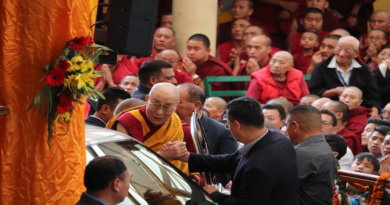Senior US Congressman urges China to allow access to Tibet
DHARAMSALA, July 18: For the past five decades the Chinese Communist Party has ruled Tibet harshly and treated the Tibetan people with disdain, said a senior member of the US House of Representatives from Pennsylvania.
Rep. Joe Pitts who co-sponsored the Reciprocal Access to Tibet Act of 2014, a bipartisan bill with US Congressman Jim McGovern made the comments on the floor of the US Congress on July 15 while urging China to allow unrestricted access to Tibet.
The bill promotes access to Tibetan areas of China for U.S. officials, journalists, and average citizen. The bill also calls for restricting access to America for those Chinese officials responsible for blocking travel to Tibet.
He noted that it is a “matter of basic fairness and is critical to ensuring that human rights are protected in Tibet.”
“The current regime says that Tibet is open to all visitors, but the truth is that actual access is highly restricted and is subject to arbitrary closures. It is difficult for tourists to access the region, and it is almost impossible for journalists and diplomats to get in to report on conditions,” he said.
“When Chinese officials get visas to the U.S., they are not kept out of certain States or cities. They are free to travel our Nation, as are Chinese tourists and reporters. It is time that the Chinese Government lives up to its word and allows access to Tibet, not only for Americans, but for the many religious pilgrims from nations around the world.”
The US State Department reports that between May 2011 and December 2012, China has denied more than 10 requests for United States diplomatic access to the Tibet Autonomous Region and that even when such requests are granted, diplomatic personnel are closely supervised and given few opportunities to meet local residents not approved by authorities.
Though few visits by Congressional staff have occurred since 2008 which were tightly controlled by the Chinese government, no Member of Congress appears to have visited Tibet since the 1990s.




